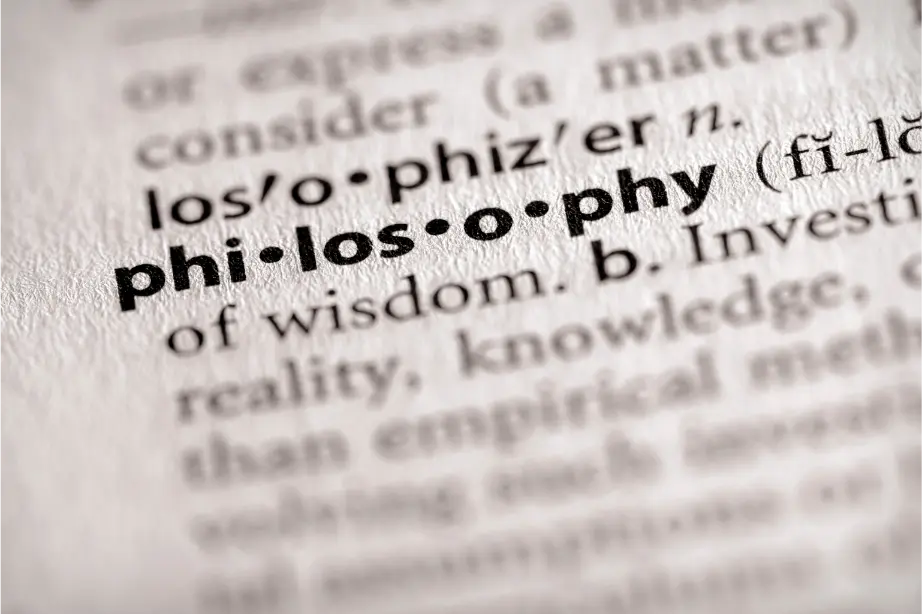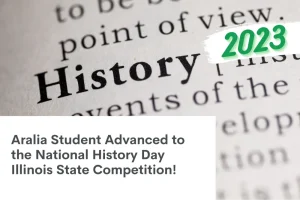IPO International Philosophy Olympiad
The International Philosophy Olympiad invites high school students from around the world to explore philosophical topics. Participants write essays based on prompts, which are evaluated by a panel of judges. The competition promotes critical thinking and encourages students to engage with philosophical ideas.
Interested in the competition?

Competition Overview
High school students from around the world
Eligibility
Free
Entry fee
February 18, 2024
Essay Submission Deadline (USA)
16-19 May 2024 in Helsinki, Finland
Competition Timeline
Competition Details
1. Competition Objectives
The competition aims to promote philosophical education at the secondary school level and enhance high school students’ interest in philosophy. Additionally, it fosters critical, inquisitive, and creative thinking, promotes philosophical reflection on science, art, and social life, and cultivates ethical considerations regarding modern-world challenges. By facilitating intellectual exchanges and personal connections among youth from diverse countries, the competition also seeks to promote a culture of peace.
2. Eligibility
To enter, students must be currently enrolled in high school or, in countries with a December school year-end, have been enrolled the previous year. Even university students can participate if they meet these criteria. Participants must be 20 years old or younger.
3. How To Qualify
To qualify for the International Philosophy Olympiad (IPO), students must participate in a national competition organized by an affiliated national philosophical society or another philosophical organization connected to high school philosophy. In cases where no national society exists or no competition is organized, alternative selection methods can be approved by the IPO Executive Board.
Step 1: Check for a National IPO Delegation: Determine if your country has a national delegation. If it does, contact the delegation leader directly. If not reachable, email the IPO Executive Board at board.ipo@gmail.com for assistance.
Step 2: Creating a National Delegation: If your country lacks a delegation, the IPO Executive Board can help establish one. Important considerations include having qualified philosophy teachers, connecting to a local or national philosophical society, and ensuring open access for all high school students.
4. Competition Day
Students have 4 hours to write a philosophical essay on one of the four topics. The topics are provided in four languages: English, Spanish, French, and German, and students must write in a language other than their own.
5. Criteria of evaluation
- Relevance to the topic
- Philosophical understanding of the topic
- Coherence
- Power of argumentation
- Originality
Topics
ENGLISH
- At times, the truth shines so brilliantly that we perceive it as clear as day. Matter and habit then draw a veil over our perception, and we return to a darkness almost as dense as before. We are like those who, though beholding frequent flashes of lightning, still find themselves in the thickest darkness of the night.
Moses Maimonides, The Guide for the Perplexed (ca. 1190 AD), transl. M. Friedländer [slightly revised].
New York: Dover, 1956, p. 3. - Once war has been declared for just causes, the prince should press his campaign not for the destruction of his opponents, but for the pursuit of the right for which he fights and the defence of his homeland, so that by fighting he may eventually establish peace and security.
Francisco de Vitoria, “On the Law of War” (1539), in Id. Political Writings, ed. A. Pagden & J. Lawrance. Cambridge: Cambridge UP, 1991, p. 327. - What is the status of citizenship today, in a world of increasingly deterritorialized politics? How is citizenship being reconfigured under contemporary conditions? How has the fraying of the four functions of the state – territoriality, administrative control, democratic legitimacy, and cultural identity – affected the theory and practice of citizenship
Seyla Benhabib, The Rights of Others. Aliens, Residents, and Citizens, Cambridge: Cambridge UP, 2004, p. 144. - Artificial intelligence is not an objective, universal, or neutral computational technique that makes determinations without human direction. Its systems are embedded in social, political, cultural, and economic worlds, shaped by humans, institutions, and imperatives that determine what they do and how they do it. They are designed to discriminate, to amplify hierarchies, and to encode narrow classifications. When applied in social contexts such as policing, the court system, health care, and education, they can reproduce, optimize, and amplify existing structural inequalities. This is no accident: AI systems are built to see and intervene in the world in ways that primarily benefit the states, institutions, and corporations that they serve.
Kate Crawford, The Atlas of AI: Power, Politics, and the Planetary Costs of Artificial Intelligence (2021).
Yale: Yale UP, 2021, p. 211.
ESPAÑOL
- A veces, la verdad brilla hasta imaginárnosla tan clara como el día, pero otras la oscurecen la materia y la rutina hasta sumirnos en una noche lóbrega, como anteriormente estábamos, semejantes a quien, sumergido en tétrica noche, ve fulgurar relámpago tras relámpago.
Maimónides (Mosé ben Maimon), Guía de perplejos (ca. 1190), ed. D. G. Maeso. Madrid: Trotta, 2015, p. 56. - Una vez declarada la guerra en virtud de justas causas, debe procederse en ella, no para ruina y perdición de la nación a quien se hace, sino para la consecución de su derecho y para defensa de la patria y para que por dicha guerra se llegue a conseguir la paz y la seguridad.
Francisco de Vitoria, “Relección segunda de los indios o del derecho de guerra” (1539), in Id. Relecciones sobre los indios y el derecho de Guerra, trad. de A. D. Pirotto [ligeramente modificada]. Madrid: Espasa Calpe, 1946, p. 146. - ¿Cuál es la condición de la ciudadanía hoy, en un mundo de una política crecientemente desterritorializada? ¿Cómo se está reconfigurando la ciudadanía según las condiciones contemporáneas? ¿Cómo ha afectado a la teoría y la práctica de la ciudadanía el deshilachado de las cuatro funciones del Estado: territorialidad, control administrativo, legitimidad democrática e identidad cultural?
Seyla Benhabib, Los derechos de los otros.
Extranjeros, residentes y ciudadanos (2004), trad. por G. Zadunaisky.
Barcelona: Gedisa, 2005, p. 107. - La Inteligencia Artificial no es una técnica computacional neutral que tome determinaciones sin una dirección humana. Sus sistemas están integrados en mundos sociales, políticos, culturales y económicos, delineados por humanos, instituciones e imperativos que determinan lo que hacen y cómo lo hacen. Están diseñados para discriminar, ampliar jerarquías y codificar clasificaciones estrechas. Cuando son aplicadas en contextos sociales como la vigilancia policial, el sistema judicial, la salud y la educación, pueden reproducir, optimizar y amplificar las desigualdades estructurales existentes. Esto no es casual. Los sistemas de IA están construidos para ver e intervenir en el mundo de maneras que benefician principalmente a los Estados, las instituciones y las corporaciones a los que sirven.
Kate Crawford, Atlas de Inteligencia Artificial.
Poder, política y costos planetarios (2021), trad. esp. por F. Díaz Klassen.
Buenos Aires: Fondo de Cultura Económica Argentina, 2023, 319.
FRANÇAIS
- La vérité tantôt nous apparaît de manière à nous sembler claire comme le jour, tantôt elle est cachée par les choses matérielles et usuelles, de sorte que nous retombons dans une nuit profonde à peu près comme nous étions auparavant, et nous sommes alors comme l’homme qui, se trouvant dans une nuit profondément obscure, y voit parfois briller un éclair.
Moïse Maïmonide, Le Guide des égarés (env. 1190), traduit de l’arabe par S. Munk, revue par Ch. Mopsik.
Lagrasse : Verdier, 1979, p. 12-13. - Lorsque l’on fait la guerre pour de justes raisons, il faut la faire non pour la perte de la nation contre laquelle on doit combattre, mais pour la poursuite de son droit, la défense de sa patrie et pour obtenir qu’un jour la paix et la sécurité soient le résultat de cette guerre.
Francisco de Vitoria, “Leçon sur le Droit de guerre” (1539), in Id. Leçons sur les Indiens et sur le droit de guerre, éd. M. Barbier [légèrement modifiée]. Genève : Droz, 1966, p. 83. - Quel statut revient à la citoyenneté aujourd’hui, dans un monde où la politique ne cesse pas de se déterritorialiser ? Comment la citoyenneté de reconfigure-t-elle dans les conditions contemporaines ? Comment l’effilochement des quatre fonctions de l’État – la territorialité, le contrôle administratif, la légitimité démocratique et l’identité culturelle – a-t-il affecté la théorie et la pratique de la citoyenneté ?
Seyla Benhabib, Les Droits des autres. Étrangers, résidents et citayens (2004).
Traduction originelle. - L’intelligence artificielle n’est pas une technique computationnelle objective, universelle ou neutre, qui prend des décisions sans orientation humaine. Ses systèmes sont inscrits dans le monde social, politique, culturel et économique, façonnés par des humains, des institutions et des impératifs qui déterminent ce qu’ils font et comment ils le font. Ils sont conçus pour trier, pour amplifier les hiérarchies, et pour encoder des classifications étroites. Quand ils sont appliqués à des contextes sociaux comme la police, la justice, les soins de santé et l’éducation, ils peuvent reproduire, amplifier et aggraver les inégalités structurelles existantes. Ce n’est pas un hasard : les systèmes d’IA sont construits pour voir et intervenir dans le monde d’une manière qui avantage surtout les États, les institutions et les entreprises qu’ils servent.
Kate Crawford, Contre-atlas de l’intelligence artificielle : les coûts politiques, sociaux et environnementaux de l’IA (2021), traduit de l’anglais par L. Bury. Paris : Zulma, 2023, p. 245.
DEUTSCH
- Vielmehr leuchtet uns nur manchmal die Wahrheit hervor, so daß wir meinen, es ist Tag; dann aber entziehen Materie und Lebensweise sie wieder unseren Blicken, so daß wir wieder in finsterer Nacht sind, fast wie zuvor. Wir gleichen dann einem, dem dann und wann ein Blitz aufleuchtet, während er in dichter, nächtlicher Finsternis weilt.
Moses Maimonides, Führer der Unschlüssigen (ca. 1190), übersetzt von A. Weiss, mit neuer Einleitung von J. Maier.
Hamburg: Meiner, 1972, p. 7. - Sobald der Krieg aus gerechten Gründen erklärt wurde, sollte der Fürst seinen Feldzug nicht auf die Vernichtung seiner Gegner ausrichten, sondern auf die Verfolgung des Rechts, für das er kämpft, und auf die Verteidigung seines Heimatlandes, sodass er durch den Kampf bei gutem Ausgang Frieden und Sicherheit herstellen kann.
Francisco de Vitoria, „Über das Kriegsrecht“ (1539), in Id. Vorlesungen II. Völkerrecht, Politik, Kirche = Relectiones.
Stuttgart/Berlin/Köln: Kohlhammer, 1997, p. 542-605. Originalübersetzung. - Welchen Status hat die Staatsbürgerschaft heute, in einer Welt, in der die Politik sich zunehmend von territorialen Bindungen löst? Wie wird die Staatsbürgerschaft unter den heutigen Bedingungen neugestaltet? Wie hat sich die Ausdifferenzierung der vier Funktionen des Staates – Gebietshoheit, Verwaltungskontrolle, demokratische Legitimität und kulturelle Identität – auf die Theorie und Praxis der Staatsbürgerschaft ausgewirkt?
Seyla Benhabib, Die Rechte der Anderen.
Ausländer, Migranten, Bürger (2004),
Frankfurt a. M.: Suhrkamp, 2017. Originalübersetzung. - Künstliche Intelligenz ist keine objektive, universelle oder neutrale Computertechnik, die ohne menschliche Führung Bestimmungen vornimmt. Ihre Systeme sind in soziale, politische, kulturelle und wirtschaftliche Welten eingebettet, und von Menschen, Institutionen und Geboten geprägt, die bestimmen, was sie tun und wie sie es tun. Sie sind darauf ausgelegt, zu diskriminieren, Hierarchien auszuweiten und enge Klassifizierungen festzuschreiben. Wenn sie in sozialen Kontexten wie der Polizei, dem Gerichtswesen, der Gesundheitsversorgung und dem Bildungswesen angewandt werden, können sie bestehende strukturelle Ungleichheiten reproduzieren, optimieren und vergrößern. Das ist kein Zufall: KI-Systeme sind gemacht, um in der Welt Informationen zu sammeln und zu intervenieren auf eine Art und Weise, die vor allem den Staaten, den Institutionen und den Unternehmen zugutekommt, denen sie dienen.
Kate Crawford, Atlas der KI.
Die materielle Wahrheit hinter den neuen Datenimperien (2021).
München: C.H. Beck, ersch. Aug 2024. Originalübersetzung.
Submission Details (for candidates in the US)
Stage 1: Submit an essay in English, approximately 800 words, responding to one of the two provided topics. The deadline for submission is February 18, 2024.
- Topic 1: In an interview with Richard Marshall, Ernest Sosa, the Rutgers University philosopher, said the following. “Knowledge in my view is a form of action. It involves endeavors to get it right, and more broadly it concerns aimings, which can be functional rather than intentional. Through our perceptual systems, we represent our surroundings, aiming to do so accurately, where the aiming is functional or teleological, rather than intentional. And the same goes for our functional beliefs. Through our judgments, however, we do intentionally, even consciously, attempt to get it right.”
- Topic 2: In a Wikipedia article on the philosopher and ethicist, Peter Singer, the following is written. “In Practical Ethics, Singer argues in favour of abortion rights on the grounds that fetuses are neither rational nor self-aware, and can therefore hold no preferences. As a result, he argues that the preferences of a mother to have an abortion automatically takes precedence. In sum, Singer argues that a fetus lacks personhood.”








